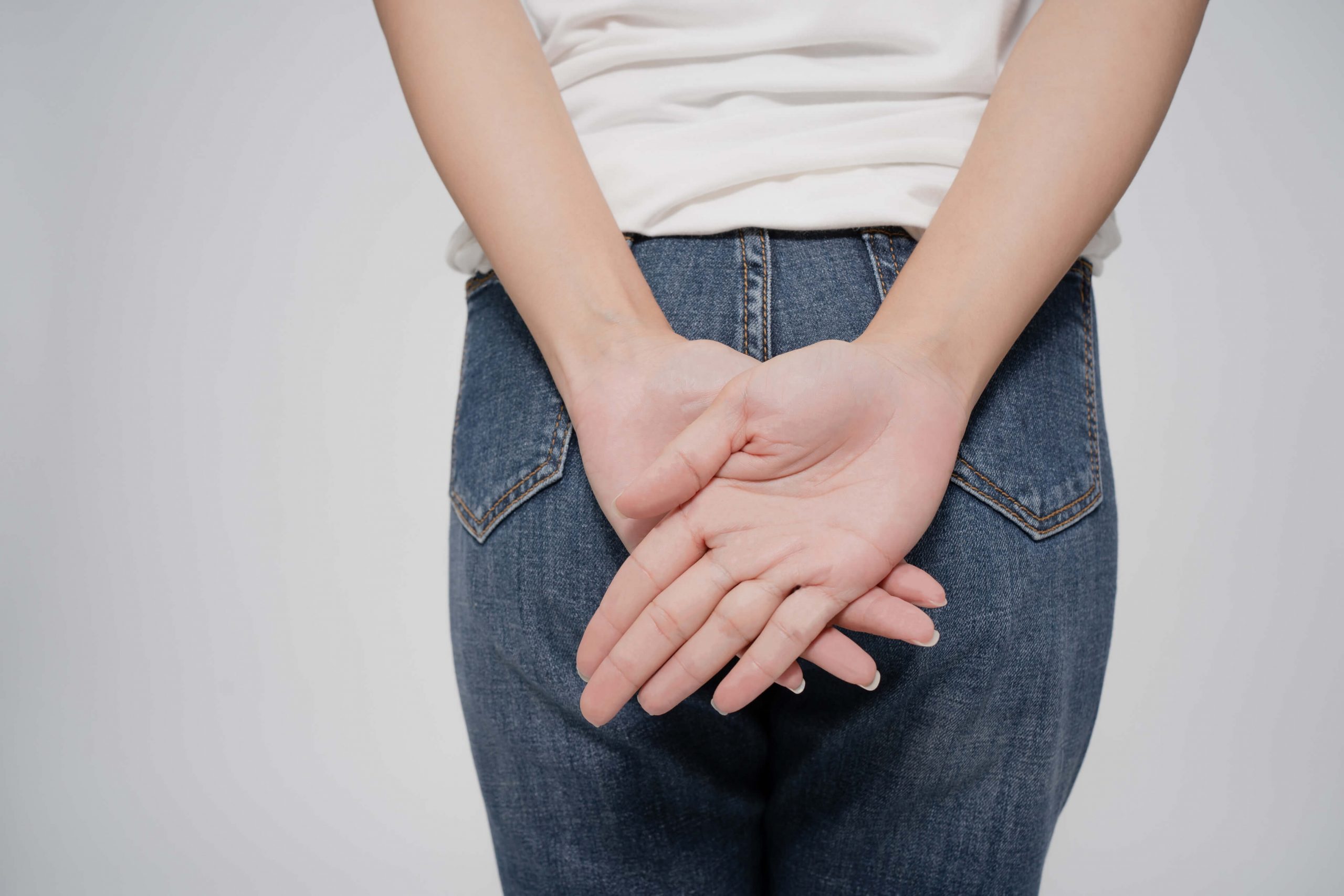


Medically reviewed by Dr. Sim Hsien Lin, Consultant General Surgeon (Colorectal Surgery)

Anal Fissure is a common condition, affecting 1 out of 10 individuals at some point in their lives. They can equally affect both sexes and are more common in children and young adults under the age of 40. Over the years, anal fissure has been a cause of significant distress and frustration to both the patients as well as their doctors. Bleeding from anal fissures is commonly and erroneously attributed to painful haemorrhoids.
Read on to learn about the common causes of anal fissures, how to tell if you have them and what options are available for treatment.
An anal fissure is a small but painful longitudinal tear or defect in the skin lining your anal canal. It is a non-healing tear that can extend into the edge of the anus. Two kinds of anal fissures are commonly encountered, acute and chronic. A short-term or acute anal fissure is a superficial tear in the lining of the anal canal, resembling a paper cut. A long-term or chronic anal fissure does not heal even after eight weeks. At times, the tears are deep enough to expose the underlying muscles.
An anal fissure may occur if you experience sharp pain while and after defecating. The pain is usually described as a “searing” or “tearing” type of pain. The pain subsides between bowel movements.
You may also notice bleeding or blood spots in bright red on toilet paper or your undergarments.
Symptoms of itching or irritation on the skin around your anal opening may also be present. Some individuals may also notice visible cracks or experience an extra bit of skin (skin tag) at the edge of the anus.
Foul-smelling discharge, discomfort when urinating, frequent urination, or inability to urinate may also be observed.
Many factors can lead to the development of anal fissures. Some of the more common ones are explained below.
Difficulty in passing hard stools can lead to the development of anal fissures. The hardened stool can be a result of a low fibre diet. An example of such is a diet that lacks fruits and fresh vegetables but is rich in poultry, dairy products, and refined carbohydrates. Fibres from food add bulk to your stool, creating a gel-like consistency of the stool and preventing it from breaking.
Low fibre diets lead to constipation and the formation of small, hard, pebble-like stools that require straining. Hardened stools lead to stretching and subsequent development of tears in the skin of the anal canal. Other factors contributing to the hard stools are not drinking adequate amounts of water and an inactive lifestyle.
Anal fissures can also be caused by repeated bouts of diarrhoea. For severe cases, it can dry out the skin of your anal canal, causing it to crack open.
Anal fissures are common in women after childbirth. Trauma to the anal canal during vaginal delivery can lead to the development of fissures. Pregnant women are also more likely to suffer from constipation.
An anal fissure can heal by itself if you take steps to soften your stool. It includes modifying your diet by incorporating fibre-rich foods and plenty of fluid. Avoid straining or prolonged sitting in the toilet. Clean the anorectal area gently and consider using the lubricating gel if the anus is dry and sore. Use baby wipes, moist tissues or bidet spray an alternative to toilet paper. If symptoms persist despite these measures, it’s time for you to see a doctor.
These are the medical and surgical treatment options for anal fissure:
Surgical treatments are second-line therapy if you don’t respond to medical treatments or are unable to tolerate its side effects. Most patients with chronic anal fissures will require surgical treatments. You will be evaluated by a colorectal surgeon for the following:
The surgery involves cutting a small portion of your anal sphincter so that the resting anal tone is decreased. This is a routinely performed day surgery under regional or general anaesthesia and can be effective in more than 90% of cases. Pain may be relieved in a week or 2 few and complete symptomatic improvements will be seen 4 to 6 weeks following the surgery. The major concern associated with the procedure is the small risk of faecal incontinence afterwards.
Advancement flaps is an alternative procedure in patients with a prior history of internal Sphincterotomy or who have poor sphincter functions.
Anal fissures are common conditions that mainly occur in infants and young and middle-aged adults with constipation. These individuals may experience painful defecation and rectal bleeding. It is not a serious condition and most people can practise home-based remedies to relieve uncomfortable symptoms and promote healing.
Medical help must be sought if the problem is persistent or if it recurs. Non-surgical treatments are available and can be effective in most individuals. For some who fail to respond to non-surgical treatment, surgery will be required. A colorectal specialist will evaluate and provide an appropriate treatment for the anal fissure condition.




Dr. Sim Hsien Lin is a specialist colorectal surgeon in Singapore with over 10 years of experience in colorectal surgery. Her sub interests include laparoscopic colorectal surgery, transanal endoscopic microsurgery (TEMS), surgical management of piles, inflammatory bowel diseases and complex anal fistulas.
Read Full BioCome visit our clinic, which are equipped with modern and updated equipment, and a team that will take care of all your needs.
Dr. Sim became a Fellow of the Royal College of Surgeons (Edinburgh) in 2011, winning the Gold Medal award at the FRCS Exit Examination that year.
Dr. Sim firmly believes that transdisciplinary care is the key to supporting both the elderly and complex patients through their perioperative and recovery journey.
Dr. Sim firmly believes that transdisciplinary care is the key to supporting both the elderly and complex patients through their perioperative and recovery journey.
Book An AppointmentPlease fill up this form and we’ll get back to you shortly!

For quicker response, call us at+65 6261 9227

Chat with our friendly clinic staff through WhatsApp!